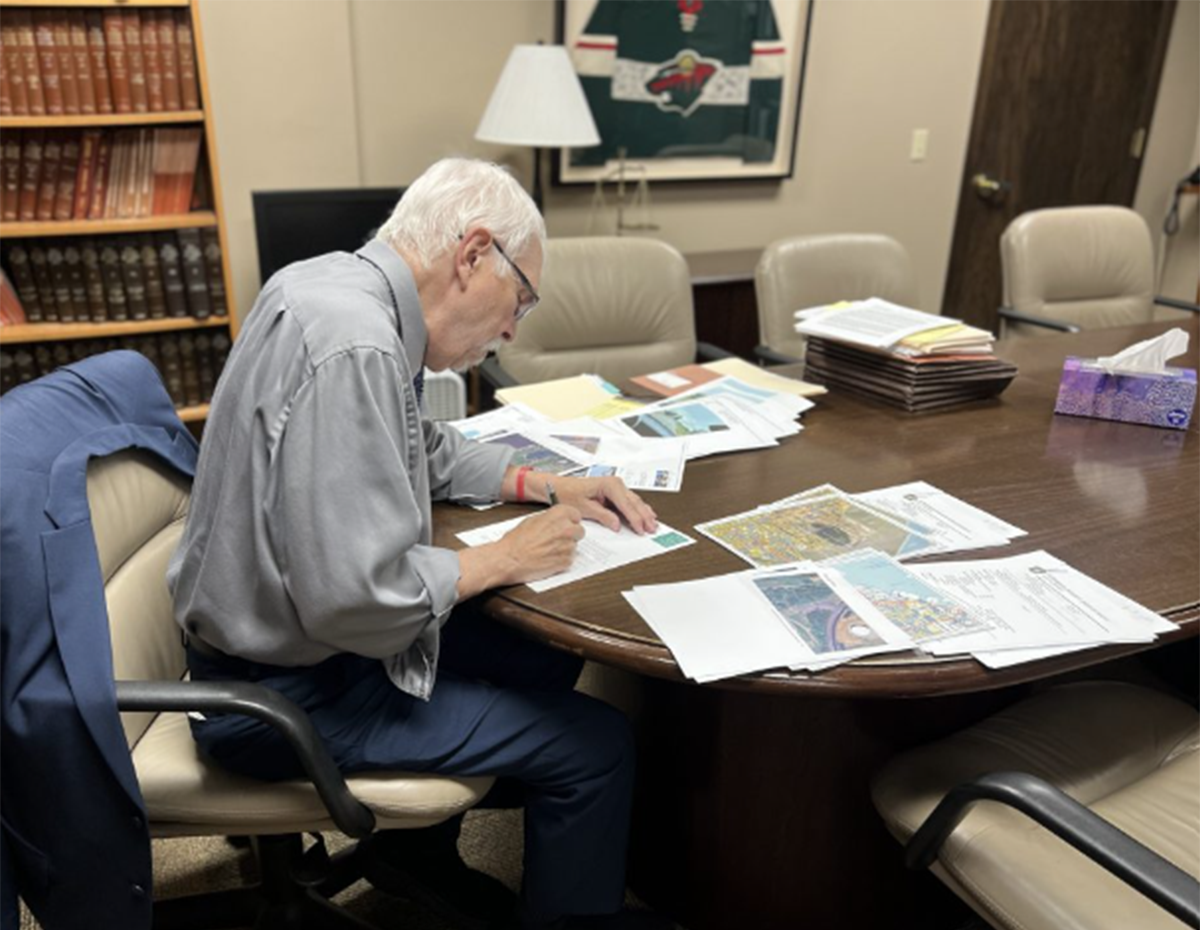Ruth Peterson began searching for a religion that fit her lifestyle when she was a student in the ’70s. She said she came to a point where she needed deeper meaning and wanted something that was not exclusive.
“Baha’i was the answer to what I was looking for,” said Peterson, a non-traditional student and a teacher at Eau Claire’s Lakeshore Elementary, 711 Lake St.
A man named Baha’u’llah founded Baha’i in Iran in 1844. He is considered the most recent messenger or manifestation of God, Peterson said. His message preaches unity and the end of prejudice.
“It gives me a very positive outlook of the future because of the idea of a divine source of unity,” Peterson said.
Baha’is believe people such as Baha’u’llah, Buddha, Christ, Moses and Muhammad are manifestations of God, Peterson said. They call this progressive revelation, a continuous process in which spiritual teachings stay the same, but social teachings need updating.
| “It gives me a very positive outlook.” –Ruth Peterson Non-traditional student, on practicing Baha’i |
Peterson compared the manifestations with school. Students gain maturity and knowledge as they complete each grade. Humanity follows the same progression, but the teachers are messengers such as Christ, Moses and, most recently, Baha’u’llah.
UW-Eau Claire’s Baha’i organization meets the first Sunday of every month in Davies Center, said Chuck Tomkovick, the group’s faculty representative. Students pray and hold discussion. Meetings are open to anyone and usually last an hour.
Baha’is invite others to investigate the faith, Peterson said, and do not use politics or demonstrations to get their message across.
The faith is unobtrusive and teaches by example, Tomkovick said. Baha’is believe in what they call an independent investigation of truth.
Those practicing are responsible for their own beliefs and what they choose to follow, Peterson said. Baha’is believe people should not accept a belief blindly.
Baha’i provides a frame of reference for how to treat other people, said sophomore Louise Woletz-Hinz, who was raised Baha’i.
She said the faith focuses on breaking down barriers and affects every aspect of her life, from shaping her career to influencing her parenting.
Sophomore Jemia Moser was raised Baha’i and said she prays and reads about the faith daily.
“It is overwhelming sometimes, but interesting to look past oneself,” she said.
The feast, or devotional service, is held on the first day of each Baha’i month.
The Baha’i offer classes and youth groups. They also participate in Community Table, an organization that serves meals to people in need, Peterson said.
There are six to seven million Baha’is worldwide, Tomkovick said.
He added although he is not a Baha’i, he has great respect and appreciation for the faith.
“I am grateful to live in a country where we have religious freedom,” Tomkovick said, “and we respect people of different faiths.”






